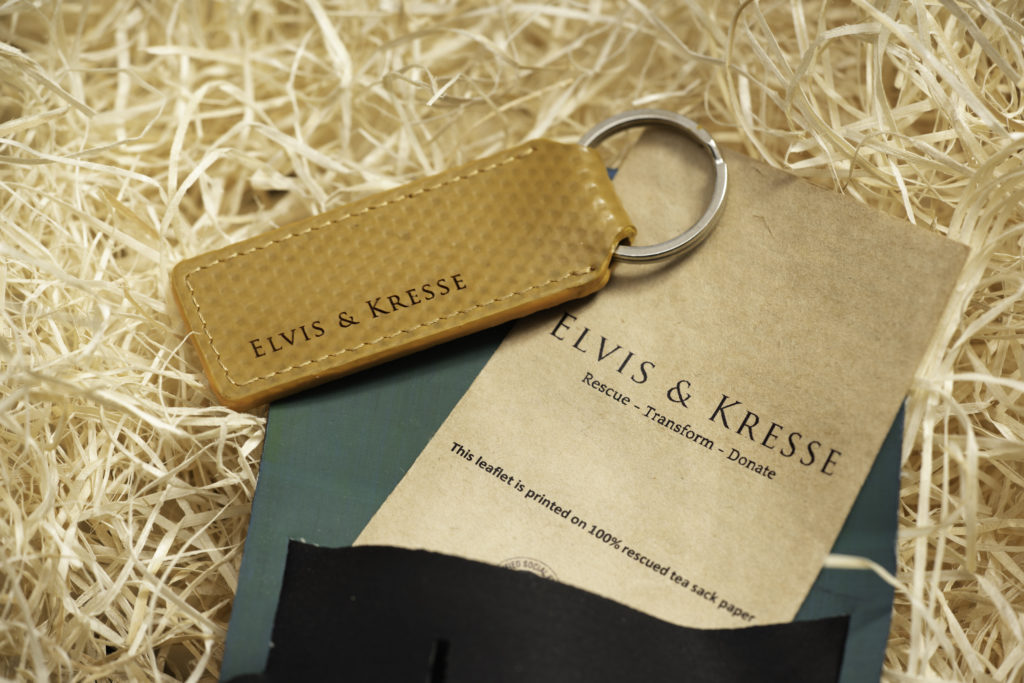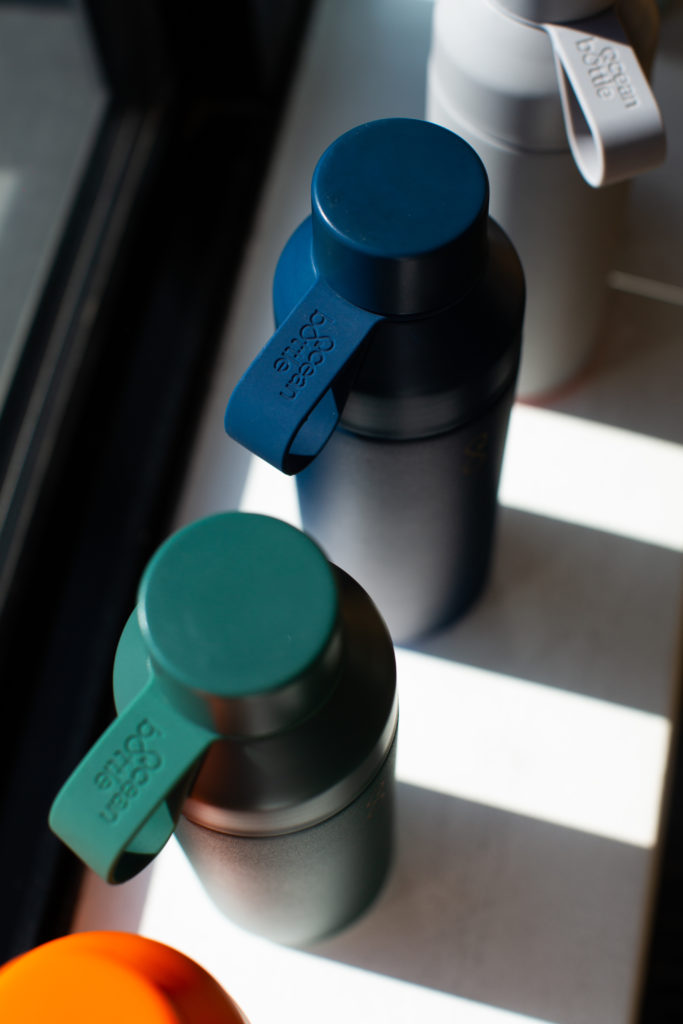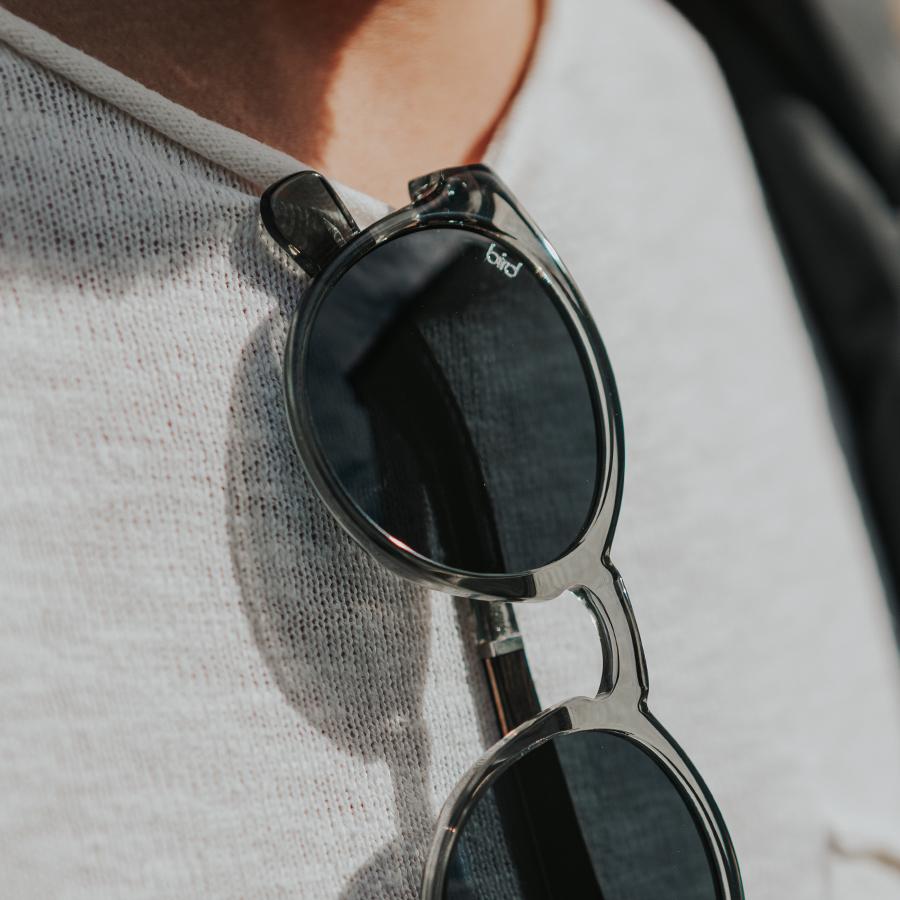We're 3! An interview with Social Supermarket’s co-founders
9/9/2021
Happy birthday to…us! September 2021 marks three whole years of Social Supermarket.
While we often go behind the scenes with social enterprise founders here on the blog, we’ve yet to feature our own co-founders. Until now.
Our third birthday felt like the perfect excuse to catch up with Jamie, Alex and Matt to hear their reflections on the journey so far and what’s to come.
Find out about the brands that inspired them to join the #SocEnt world, what it’s been like running the business through Covid, their birthday wishlists and more.
Take us back to where it all began! How did the three of you meet and end up starting a business together?
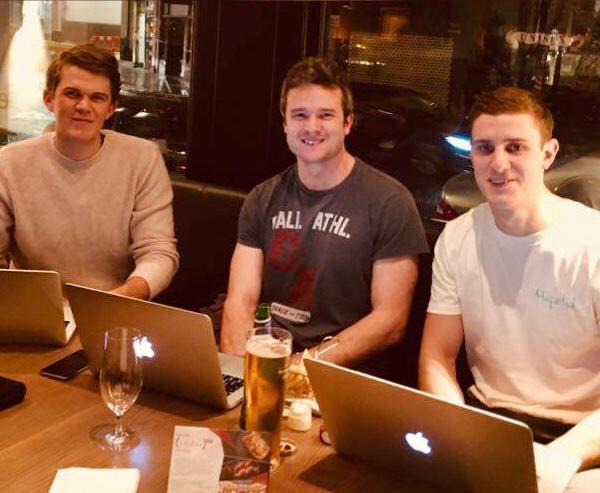
Jamie: We actually know each other from university. We all rowed and spent a lot of early mornings together, having done a lot of exercise, slightly grumpy with each other. Probably not all too different now in terms of being tired, and working hard together!
Alex: I’d never thought of working with my friends but given our background rowing together and friendship since then, it seemed a really obvious move. I knew the strengths of both of the guys and it felt like the team was really well balanced in terms of skills and the dynamic was strong.
I remember when Jamie came to me with the idea for Social Supermarket (in a Cafe Nero in Clapham of all places). It felt like something really meaningful to work on with a really strong consumer demand. We all went to work immediately building the prototype, pulling some late nights to get the first version of the site live.
When it launched it was such a relief and then when we had our first customer it was the most amazing feeling. It has just built from there and it’s amazing when we pitch the idea to people, the positive reaction we get.
Were there any particular social entrepreneurs and businesses that inspired you to get into the sector?
Matt: On my first job in London, there were lots of really good lunch places nearby. I was still rowing at the time so I was eating quite a lot, which can get expensive. We discovered Too Good To Go, the app where you can get leftover food from lunch places really cheaply.
We used that loads and it was absolutely brilliant. It was one of the first times I’ve come across a startup business that was also trying to solve an actual problem the world has, not just competing on stuff like how quickly they can get groceries delivered to your front door.
Alex: For me, there were a few brands which really stood out and strangely it tended to be the more day-to-day brands which gripped me – Good Wash Company, Elvis & Kresse and Toast Ale, to name a few. I loved this idea that you could make substitutions to your daily items and have an impact on society.
Talk us through a typical day at Social Supermarket HQ for each of you.
Alex: One of the best things is that no day is identical. I know that’s a bit cliche but it’s true when you start a business, especially in a sector you have limited experience in. As the business grows, there are new challenges every day and without an expert in each of these areas it really is on the team to go away, learn about the subject and take charge to deliver the solution.
Day to day, I look after the marketplace business, finance and elements of operations. They are all interlinked so having coverage across multiple areas is very interesting and allows you to find solutions which are multi-dimensional and hopefully solve more than one problem at a time.
Jamie: A lot of stuff I do is around our corporate clients. It’s about putting together proposals and working through different options of gift boxes. Often they’re asking for products we don’t have in stock, so we’ve got to go out there and source them. That can be anything from flowers (this week I’ve been learning more about flowers than ever before!) to a particular type of baked good.
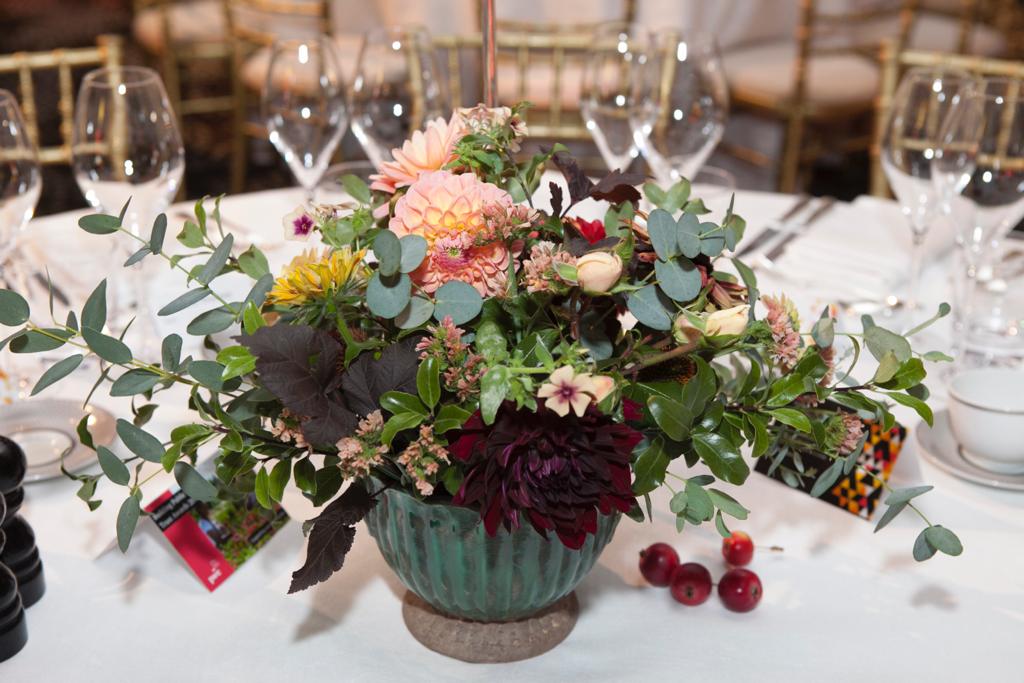
But that’s what I love about it – you get that exposure to lots of different products and lots of different businesses, and you get to know them in a really intricate way. And you’re also able to work with these smaller suppliers to provide some really sizable, life-changing orders, which can really accelerate the growth of their business.
Matt: I’m heavily involved in the technology side, working on the website and trying to improve the customer experience. At the moment I’m especially focused on the experience once they’ve placed an order, making sure they get shipping updates and improving the communication. This is quite difficult for us because we are a multi-vendor marketplace, with products shipped by different brands.
We’re also launching a Team Gifting Platform this month to make it as easy as possible for corporates to buy social enterprise products.
How do you find brands for the website and what standards do they need to meet to become a partner?
Jamie: Brands often find us through referral or press, or we find them through various social enterprise and sustainability networks, like Social Enterprise UK and B Corp companies.
In terms of the broad criteria for which brands join our website, first of all, they’ve got to be a social enterprise and reinvest their profits back into their social mission. That social mission can be generally speaking under three different criterias…
One of which is economic opportunities. So that’s brands who provide employment opportunities to those folks furthest from the workplace, for instance, NEMI Teas providing employment for refugees.
Then there’s “upcycled“, giving a second life to a product that would otherwise go to waste, like Elvis & Kresse using fire hose to make handbags and UpCircle that use coffee granules to make their scrubs.
And the final one is profits donated, where money from each purchase is reinvested into a social cause. An example of that is Ocean Bottle – for every bottle you buy, they donate to plastic bank, and that donation equals the collection of 1000 plastic bottles.
They also have to go through a third party transparent application with Good Market. They have a range of minimum sector standards to ensure that materials used in the products aren’t damaging to the environment or the community around them.
Covid hit the world about 18 months into running Social Supermarket. What challenges did that bring and what’s kept you motivated in these strange times?
Jamie: As an online business focused on gifting, we were very fortunate that this was actually a huge period of growth for us. So the challenge was more around meeting the demand that we saw in the market. For Christmas last year, we had 16 times growth on the 2019 year, because gifting and hampers were particularly popular. (Pictured below, double decker lorries arriving to pick up Christmas hampers from Social Supermarket in 2020.)
This was great because it meant we could provide lots of different orders for suppliers who had been hit very hard by Covid, especially those based in hospitality.
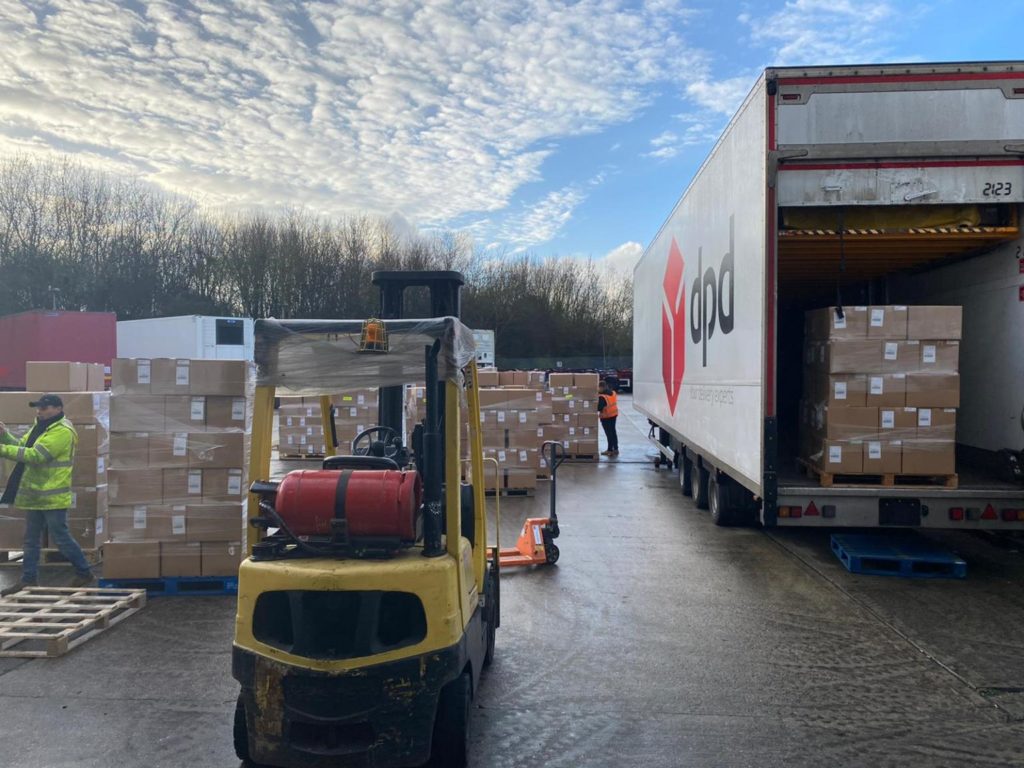
Matt: In terms of motivation, there’s so much that we want to do and we set ourselves really ambitious goals and targets to hit. We’re very excited by what we’re doing. So in a way Covid has helped just focus our attention on those goals. You know, there’s almost less distractions.
You have got to think about your own mental health and make sure you’re taking breaks, though. I quite like to go on long walks or a bike ride to get some fresh air, clear my head and zoom out a bit.
Despite the difficult circumstances, you’ve kept growing with over 90 brands now on the site and a team of people working with you. Do you think the pandemic has made people even more eager to shop ethically?
Jamie: Definitely. I’ve seen a couple of different studies which have said that after Covid, consumers have become even more conscious of the impact their purchases have. People are also a lot more conscious about buying local and buying from brands around them. We stock pretty much exclusively brands who are based in the UK, and also reduce the air miles associated with delivery.
We’ve definitely had that kind of feedback and a lot of companies who’ve wanted to purchase from more environmentally responsible brands. I think that trend is only going to continue as well, both from a corporate client perspective, but also from individual consumers.
What have been your proudest moments from the last three years?
Matt: Last year we relaunched the website before Christmas and worked with an agency called Studio More on a full rebrand. I only had one weekend to implement the rebrand onto the website before we needed to launch. And I spent half a day of that weekend doing the sliding banner on the homepage…
It took a few late nights, but I managed to implement the rebrand and also finish the website without too many issues once we launched, so that was one of the one of my proudest moments. The agency was slightly taken aback – I don’t think they’ve ever given someone designs on a Friday and seen it live, ready, taking orders on the Monday.
Alex: For me, there have been several really amazing moments from when we took the first version of the site live, to our first customer on the marketplace, to our first large corporate customer to when we raised angel investment. Each was a massive team effort and was a small amount of validation that we were building a good thing which people valued and had a tangible impact on society and the environment.
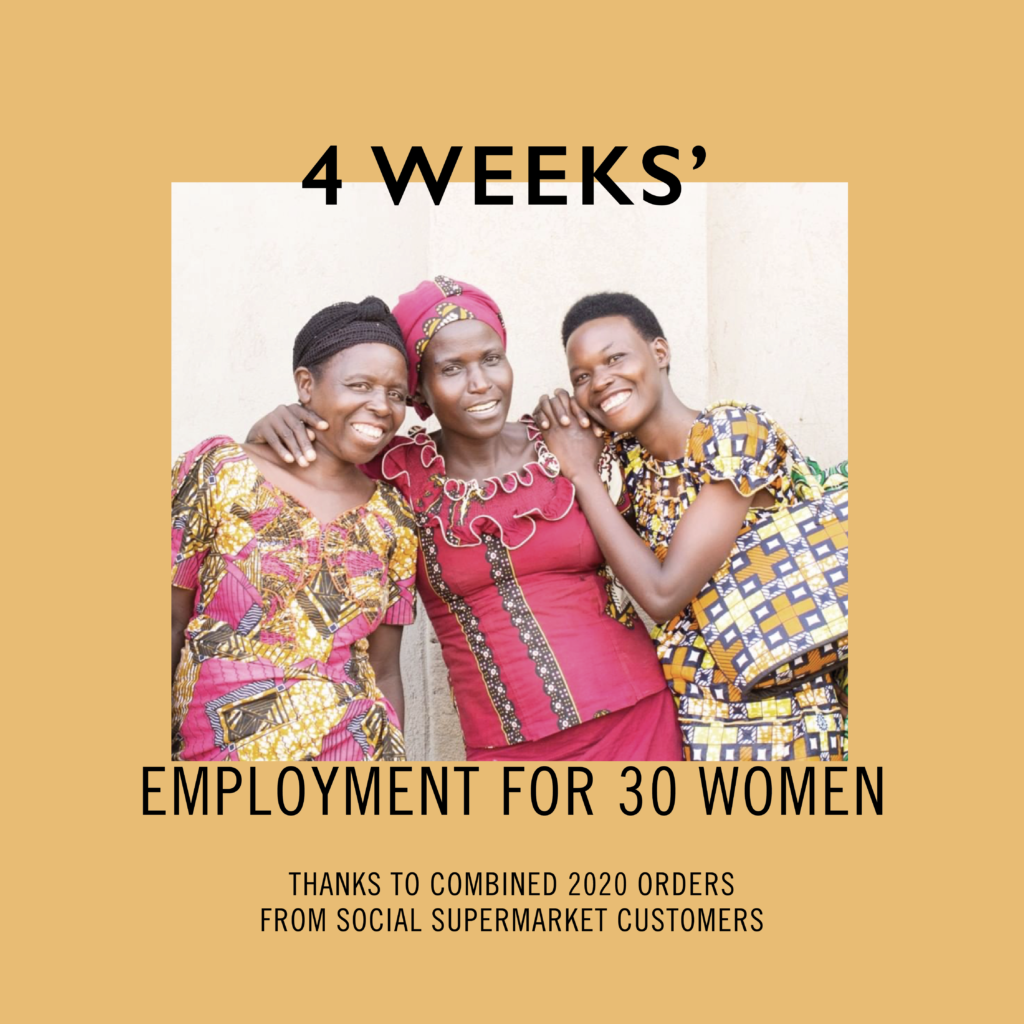
Jamie: Seeing the impact stats at the end of the year from purchases made on our site is a really proud moment too. Whether it’s the amount of wonky fruit and veg saved from waste or hours of employment created for refugees, there’s a fantastic amount of impact. That’s obviously down to our brands but also from orders created through us.
Matt: Also making our first hires. We hired Katie last year, then Phoebe, Jess and James this year, and the passion and commitment they’ve put into it has been really exciting.
Why should any budding entrepreneurs out there consider making their business one with social impact?
Alex: I’d urge entrepreneurs to not be fooled into believing successful businesses can’t have social missions and vice versa. What working at Social Supermarket has shown me is that these businesses are as commercially viable as those without social impact but the fact they have this strong social mission means they stand out from the crowd. It strengthens their brand and message demanding more loyal customers.
To me, businesses with social missions are the businesses of the future – companies should own their impact and shout loud and proud about it.
Since it’s your birthday, tell us which gifts from Social Supermarket would be top of your wishlist.
Matt: I’ve got my eye on the Elvis & Kresse slider belt. I don’t think I’ve worn a slider belt since I was about 12 but I realised recently it’s actually quite a good design. Belts stretch, the hole ends up in the wrong place and you need to punch the hole. With a slider belt you can set the exact tightness you want at any point!
Jamie: Probably a pair of sunglasses. We’ve got a couple of great brands making sunglasses, the newest being Bird. They distribute solar light to remote communities in Africa and the sunglasses are really stylish as well.
Finally, looking ahead to the future – what are you hoping Social Supermarket will achieve by its next birthday and beyond?
Jamie: I think when you talk about social enterprise a lot of people probably don’t know what it means and think you’re talking about some sort of social media. So we’d really like to put social enterprise and the brands we work with more on the map of the consumer. And also be the first place that people look to find a buy from social impact products.
Matt: I want to make the shopping experience as enjoyable and streamlined as possible. Making it such an easy experience that there’s almost almost no excuse not to buy ethical products.
Keep reading about what goes on behind the scenes at social enterprise brands:

